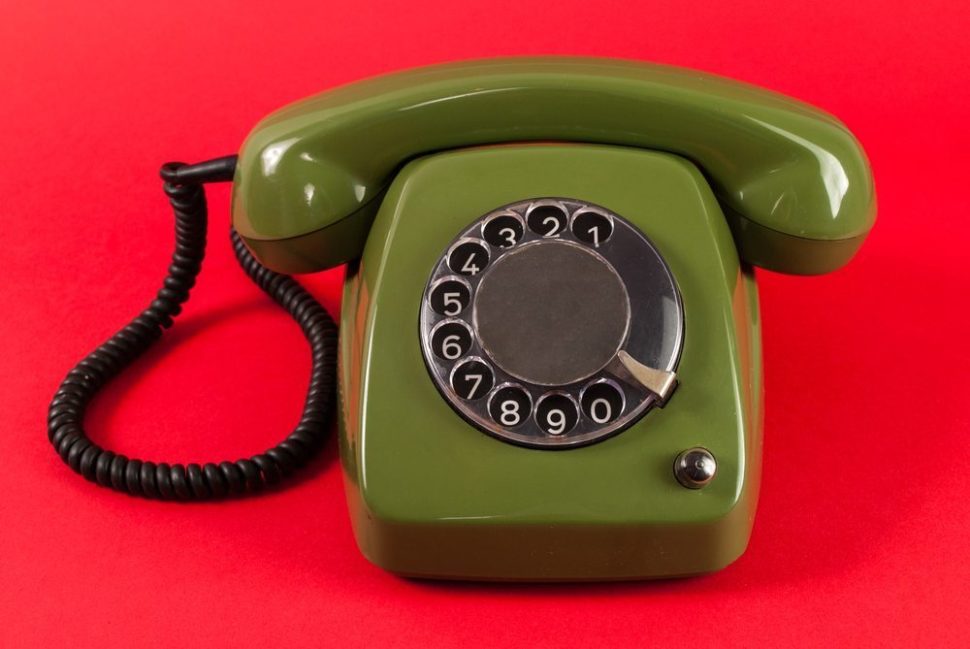Out with the old, in with the new. When it comes to landline phones, the transition to “cellular only” isn’t so cut and dry.
Why do people hang on to their landline phones? According to AP, people keep them for various reasons, including: necessity, nostalgia, to trap telemarketers, and most commonly, for emergencies.
Traditional, copper-based phone lines will continue making calls even through a power blackout. This is possible because they have their own power supply.
According to the CDC, cellphone users are more likely to drink heavily and smoke.Click To Tweet
Cable and phone companies these days, however, often require that customers buy Internet service and a landline bundled. The problem is that these are not true landlines–they still use the Internet for connectivity. If the modem has no power, you can’t make calls.
What’s more, if you really look into these deals, you’ll see that opting in for a “discounted” bundle really means you are paying multiple times for Internet access.
Why do People Keep Their Landline Phones?
Emergency
Say you’re using your landline for 911 calls. Whether using a traditional landline or an internet-based landline, emergency calls are more reliable because the dispatcher will automatically have your location. When using a GPS-located
When using a GPS-located cell phone, the dispatcher may have trouble determining your exact location.
Experts from the National Emergency Number Association suggest that people who live alone or are disabled should take advantage of the extra security of a landline. Fine print: this approach really only works if its copper-based, and not
Fine print: this approach really only works if its copper-based, and not necessarily for digital landline service.
Telemarketer Fly Paper
If you still have a landline, you may be able to attest that most of the calls you receive are from someone trying to sell you something.
Lack of study accounts for little correlative data, but if you can funnel all of these “spam” calls to one phone (and not the cellphone that you use more regularly) could that be considered a life hack?
Anyone with a cell phone number that has been passed around Big Data databases knows that these telemarketers are just as determined to get at you on your mobile phone.
Nostalgia
For most middle-aged adults in the U.S., memories of the racing to the house phone as a child might seem fond and, these days, altogether foreign. There’s a simple comfort to the landline phone, and so it’s safe to say that older people are more likely to use one.
There’s a simple comfort to the landline phone (and that love-hate relationship to the accompany cord). It may be safe to say that older people are more likely to use one, but certain hipsters and thrift store junkies might hang onto the landline for the phone.
Necessity
As AP points out in our source article, Joe Krkoska, a supply chain director living in Zionsville, Indiana uses copper wire for his home security system.
He also uses that line for his landline phone. As we mentioned, these are the most reliable type of landline phones.
If Joe were to opt for getting the line removed, it would require uprooting his entire home.
Here’s an idea:
Since Indianapolis happens to be one of the Top 9 U.S. Cities for tech job creation, could a startup create a business model around helping Indianans like Joe find an alternative to landline use? Perhaps one that doesn’t rely on customers paying more than once for Internet service?
Why Don’t They?
Stephen J. Blumberg, the co-author of the Centers for Disease Control and Prevention’s National Health Interview Survey, which surveyed nearly 20,000 U.S. households, says, “there certainly is something about giving up a landline that appeals to the same people who may engage in risky behavior.”
The study found that “wireless-only adults are more likely to drink heavily, more likely to smoke and be uninsured.”
Whether this correlation pervades all non-landline phone users in the U.S. would require further research. However, the gathering of this sort of data is crucial in designing the advertising campaigns of telecom providers.
As Big Data continues to inform business practice, the type of phone you use could help businesses figure out what you will and won’t buy.



















Comments (0)
Most Recent